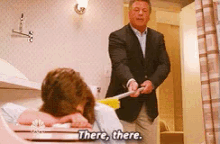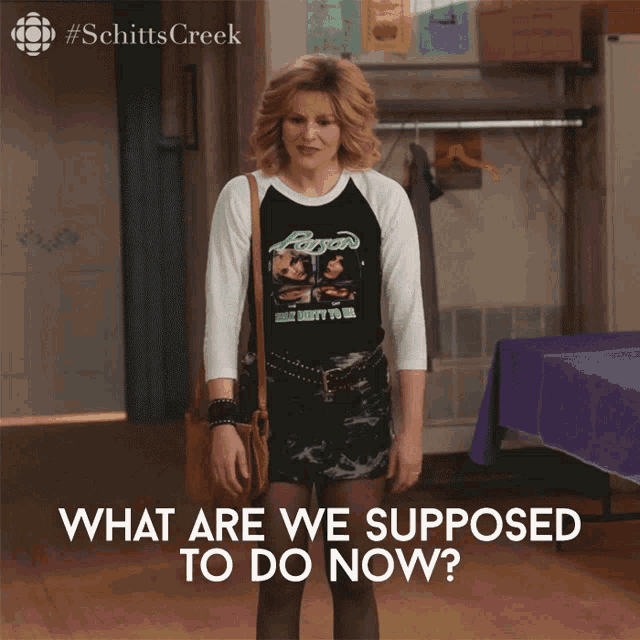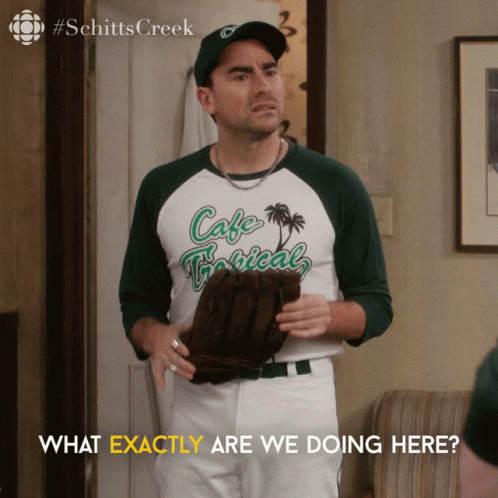HANNAH GREEN: "Grady, you know how in class you're always telling us that writers make choices?"
GRADY TRIPP: "Yeah."
HANNAH GREEN: "And even though you're book is really beautiful, I mean, amazingly beautiful, it's... it's at times... it's... very detailed. You know, with the genealogies of everyone's horses, and the dental records, and so on. And... I could be wrong, but it sort of reads in places like you didn't make any choices…"
- Film adaptation of Wonder Boys
I’m not particularly scared of a blank page. (That does NOT mean I don’t fear many other things in writing—like succinctly conveying emotion! Or knowing what manuscript to prioritize! 😱) Still, even getting going is something many creators struggle with, and if I had to guess, it likely comes down to the pressure of having to make sO. mAnY. cHoIcEs—which, honestly? I overstand.
And that stress only gets worse after the initial draft! Every revision round kicks off choice-overdrive, especially when staring down a problem child. It’s not simply “endless” options, x; it’s the multiplicity of each of those options, x to the nth power. Heck, even working on one thing means you are NOT working on something else (at least, not during that exact time). It’s…a lot.
It’s hard enough to make choices about a KNOWN quantity1, let alone something in the process of being identified. After all, here are just some of the many decisions that a writer must make (if not at first, eventually).
What is my premise?
What format would this story best work within?
Who is the main character? And WHO are they, really?
Who is telling this story? Why?
What does the character think they need?
What does the character actually need, and why don’t they yet know it?
What is the plot?
How is the character driving the plot, and how is the plot driving the character?
What will I purposefully omit?
What words will I use, one after another, to create sentences?
What sentences will I use, to create paragraphs (or stanzas, or panels…or the author statement they’ll include on my psychiatric papers)?
Who will rub my back while I’m bemoaning all of this, and how can I get them to understand I really need them to get in there, deep in the knots?
UGGGGGHHHH!
Luckily, Ann Patchett has some thoughts2.
“What now is not just a panic-stricken question tossed into a dark unknown. What now can also be our joy. It is a declaration of possibility, of promise, of chance. It acknowledges that our future is open, that we may well do more than anyone expected of us, that at every point in our development we are still striving to grow.”
—Ann Patchett, What Now?
YES! YES, GURL!
So maybe what can help are…two more questions 😂; specifically…
Why does this story matter, to me?
Why does this story matter, to others?
In short: what is your intent, and how can this draft, at whatever stage it’s at, eventually match THAT?
If you know why this story matters to YOU, that’s terrific—let that guide you! However, I feel like it’s perfectly fine—normal, even!—if you don’t quite know this yet. So often we write and come to what it “means” later, as if our writing is a woke-dream journal3.
It’s why the story matters to others, really, that you MUST (eventually!) figure out, at least if you expect a traditional book publisher to put their hearts and resources into forging this book into existence and getting it into bookstores. It’s why your story can be someone else’s story.
Wanting to write a book is all well and good, but at some point that book has to be a specific idea explained by words, and if you’re hoping to be traditionally published, it should be something other people will want to read.
—Kate McKean on Agents and Books
And while you don’t want (and certainly shouldn’t!) to write in some sort of weird pandering way, it’s a great lens to view each revision choice, if only to help you focus in on what matters. How can you add clarity (or mystery, if that’s what your intent is)? How can you make the story exciting (or heart-rending, if that’s your intent)? At any rate, crafting the story experience that matches your intent is the only way you’ll ever really be satisfied with it.
So, choose we must. And then, we must continue to choose, with each revision, if only to stay true to our own intent. And that can sometimes (sometimes! let’s not get complacent! that’s AI creators’ boring role!) mean tuning out other voices. Scary stuff!
"Every time you make a frame, people are going to point out what’s not in the frame. And you go and you make the next thing. That’s all that you can do, keep your head down and keep making shit."
—Lin-Manuel Miranda, in this really great New Yorker piece"At the end of the day, you can’t control how the world receives something. All you can control is what your intentions were."
—Lin-Manuel Miranda, in that same piece
Intentions, intentions, intentions. I seem to be using that word a lot these days, and I *hope* it’s because I’m recentering in a good way. Maybe I should write a Woke-Dream Journal song about it, to explore. 😂
Your “choosing with intent” friend,
Elayne
My posts are always free, but my focus isn't; if you found this post interesting or useful, please consider ♡' ing it so I know. Thank you!
Just try to get a couple to agree on a restaurant for dinner.
Actually, a book's worth of “What Now?” thoughts.
Dibs on this band name! “Woke-Dream Journal” - now with a bass guitar and a zither!








This post has me wondering what you're working on next, Elayne!
One of the questions I wasn't ready for when I started writing was "Why did YOU write this?" I had been of the opinion that the story would speak for itself, but that question got me to be a little more aware of how much of the writer ends up in a story, whether intended or not.
(Also, Wonder Boys is one of my comfort movies!)